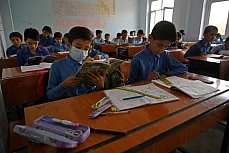Three decades on from the 1992 Rio Earth Summit, the world has so far failed to halt the destruction of wildlife and life-sustaining ecosystems. Despite impressive progress in some areas, none of the 2020 Aichi biodiversity targets have been met completely, and biodiversity continues to decline worldwide. This has led the UN’s Convention on Biological Diversity to redouble efforts in setting out its ambitious post-2020 plan, which envisages a transformation in society’s relationship with biodiversity by 2050. Achieving this vision requires skilled biodiversity scientists and conservation biologists, working not only in research institutes and environmental NGOs, but also in the many businesses that have seen the opportunities presented by societies living in harmony with nature.

Dr. Tom Webb
Vital part of future workforce
Indeed, the World Economic Forum has calculated that the numerous business opportunities (valued at >USD $10 trillion) in addressing nature loss could create almost 400 million jobs by 2030. Skilled professionals will be needed to oversee the required sustainable transitions in land and forests, agriculture, fisheries, and food systems, cities and infrastructure, freshwater, climate, oceans, and ‘One Health’ (linking healthy ecosystems to healthy people). Those with advanced training in biodiversity and conservation science will be a vital part of this future workforce.
A thorough grounding in ecology is needed to understand how species interact with each other and with their environments, so that the fundamental causes of biodiversity decline can be documented and addressed. But equally important is an understanding of how natural and human systems interact - how do we ensure a just transition to environmental sustainability whilst ensuring people everywhere have the chance to thrive? Conservation biology adds this human aspect, considering such issues as urbanisation, tropical logging, deep sea mining, and the balance between sustainable food production and biodiversity.
Undergraduate programmes will help in addressing biodiversity crisis
Quantitative skills will also be at a premium. Evidence-based decisions in all areas of government and business require people who are confident handling, analysing, and interpreting large datasets. Biodiversity Science is no different: processing data on the distributions of many thousands of species in order to identify regions of high conservation importance; matching biological and environmental data to predicting how species will move as our climate changes; using exciting new surveying technologies, e.g. drones or environmental DNA - all of these require excellent data skills.
Undergraduate programmes in biological or environmental science will provide an excellent grounding in the skills required to help address the biodiversity crisis. However, elevating these skills to the level required to meaningfully contribute to this challenge will usually require an advanced degree, such as an MSc in Biodiversity and Conservation or similar. A one-year MSc programme will deliver an intensive set of targeted courses, levelling up not only your subject-specific knowledge but also your critical and analytical thinking, communication skills, and skills in designing and conducting research projects. A good programme will also provide those vital quantitative and computational skills you need to navigate through the sea of big data that characterises modern biodiversity science.
Rewarding careers will open up
Equipped with these skills, a huge range of career opportunities will be open to you. Governments, business, and the Third Sector are all searching for Nature Based Solutions to the twin biodiversity and climate challenges. You will be able to contribute to these, maybe by designing robust research projects at a local scale, maybe by synthesising vast amounts of data at a global scale. Perhaps you will decide to work on the ground, conducting vital surveys so that we better understand the distribution of biodiversity now, and how it is changing. This might be as part of an environmental consultancy or an international conservation organisation, or you may decide you want to conduct your own original research - moving on from your MSc to a PhD and beyond. The really exciting thing about studying biodiversity and conservation now though, given the rapid growth of this sector, is that challenging and rewarding new careers will soon open up that we don’t even know about yet!
The author is Dr. Tom Webb, Senior Lecturer, School of Biosciences, University of Sheffield, UK.







